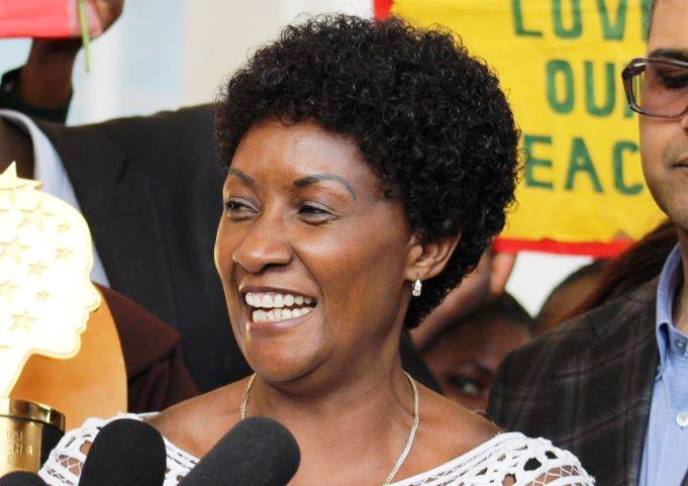TSC Requirements For Promotion To Chief Principal T – Scale 15
CHIEF PRINCIPAL T-SCALE 15
This is a promotional grade for administrators in secondary schools. The Chief Principal is the lead educator and accounting officer and is responsible for the operational management of the institution. He/she is also responsible for the development and implementation of education plans, policies, programmes and curriculum activities of the institution.
Promotion to this grade will be competitive and subject to availability of vacancies in the establishment.
REQUIREMENTS FOR APPOINTMENT
To qualify for appointment to this grade, a teacher must:–
- have served as Senior Principal T-Scale 14 for a minimum period of three (3) years;
- be a holder of Master’s Degree in a relevant area;
- have satisfactory rating in the performance appraisal and performance contracting process;
- have demonstrated ability to supervise, mentor and provide professional support to other teachers;
- have successfully undertaken the relevant TPD modules;
- have a valid Teaching Certificate;
- meet the requirements of Chapter six (6) of the Constitution; and
- meet any other requirements deemed necessary by the Commission.
DUTIES AND RESPONSIBILITIES OF CHIEF PRINCIPAL T-SCALES 15
The duties of a teacher at this level shall be to:-
- prepare lesson plans, lesson notes, timetables, schemes of work and maintain academic standards in the school to ensure that the syllabus is covered in time for evaluation;
- teach the subjects of specialization to impart knowledge, skills and attitudes to learners;
- evaluate learners on subjects of specialisation and prepare them for national and other examinations;
- coordinate and provide guidance and counselling services to the teachers, nonteaching staff and learners and instil norms and values for harmonious coexistence;
- ensure proper discipline is maintained in the school by the teachers, nonteaching staff and learners to create a conducive learning environment;
- supervise the interpretation and implementation of the curriculum and ensure teachers prepare schemes of work, lesson plans and other professional documents;
- ensure that the necessary instructional materials are sourced, availed and utilised by teachers and learners to support the curriculum implementation;
- oversee the requisition of stores and the proper maintenance of inventories to achieve accountability and optimal utilisation;
- promote harmonious relations and linkages between the school and stakeholders for instance the local community, parents and private sector organisations;
- introduce new ideas and programmes to ensure improvement in teaching and learning in the subjects of specialisation;
- embrace teamwork through collaborative planning and teaching to ensure consistency and improvement in curriculum delivery;
- serve as a role model and maintain learner discipline;
- interpret the curriculum in the school to ensure effective teaching and learning;
- oversee the organization of workshops/seminars/symposiums to share ideas to enhance performance;
- oversee implementation of remedial actions to support learners with performance gaps;
- ensure health, safety and security of learners;
- oversee prudent management of institutional resources;
- ensure that learners are adequately prepared, registered and presented for the national and other examinations;
- coordinate identification of an appropriate curriculum for the school to provide more opportunities for learners in the optional subjects offered in the curriculum;
- interpret and implement policy decisions on training, recruitment and deployment of non-teaching staff in compliance with relevant laws and regulations;
- promote the welfare of all staff and learners within the school for motivation, personal and professional growth;
- manage issues of succession in the school;
- serve as the accounting officer of the institution and ensure prudent utilisation of financial resources in the school;
- maintain the school’s physical facilities and upgrade the same on a regular basis;
- oversee procurement of goods and services, maintain all inventories and ensure availability of the necessary facilities and items;
- organize staff, Board of Management and parents meetings;
- facilitate access and retention of learners in the school;
- serve as Secretary and advisor to the Board of Management;
- participate in coordination of institutional and national examinations;
- induct and mentor staff to promote professionalism and integrity in the institution; and
- any other duty as may be assigned.
Related posts:
- TSC Requirements For Promotion To Chief Principal T – Scale 15
- TSC Requirements For Promotion to Senior Principal T- Scale 14
- TSC Requirements For Promotion to Principal T- Scale 13
- TSC Requirements For Promotion to DEPUTY PRINCIPAL II T-SCALE 12
- TSC Requirements For Promotion to DEPUTY PRINCIPAL III T-SCALE 11
- TSC Requirements For Promotion to SENIOR MASTER I T- SCALE 12
- TSC Requirements for Promotion to SENIOR MASTER II T-SCALE-11
- TSC Requirement for Promotion to SENIOR MASTER III T-SCALE 10
- TSC Requirements For Promotion to SENIOR MASTER IV T-SCALE 9
- TSC Requirements for Promotion to SECONDARY TEACHER I T-SCALE 8
- TSC Requirements For Appointment of SECONDARY TEACHER II –T- SCALE 7
- TSC Requirements For Appointment of SECONDARY SCHOOL TEACHER III T-SCALE 6


